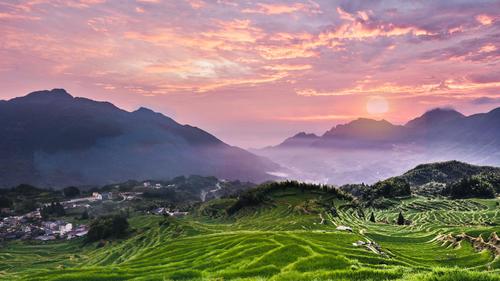Celebrating the Rich Cultural Heritage of Mexico: A Journey Through Traditions, Customs, and Festivals
Mexico is a country that is known for its rich cultural heritage, which is prominently reflected in its customs, traditions, and festivals. Its customs and traditions are admired by people from all around the world and are a significant part of the country’s identity. Each year, millions of people travel to Mexico to experience its customs, traditions, and festivals. In this article, we will take you on a journey through the vibrant and colorful customs, traditions, and festivals that make Mexico such a unique and fascinating country.
The Diversity of Mexico’s Culture
Mexico is a diverse country, and its culture reflects its diversity. With more than 120 million people, Mexico has many regional cultures that are unique in their own way. The customs, traditions, and festivals of Mexico vary from region to region. Some of the major regions in Mexico and their cultural distinctiveness are:
North Region
The northern region of Mexico is known for its ranch culture and celebrates festivals such as the Day of the Cowboy. The region is also famous for its beef dishes, such as carne asada and machaca.
Central Region
The central region is home to Mexico City, the capital city, and is the heart of Mexico’s cultural heritage. The region celebrates the Day of the Dead, which is a colorful and vibrant festival where families gather to remember and celebrate the lives of their loved ones who have passed away.
Southern Region
The southern region is known for its indigenous cultures, such as the Mayan and Zapotec cultures. The region celebrates festivals such as the Day of the Candelaria, which is a celebration of the Virgin of the Candelaria.
Customs and Traditions
Mexican customs and traditions are diverse, vibrant, and deeply rooted in history. Some of the customs and traditions that are prominent in Mexico are:
Family Values
Mexican families are known for their close-knit bonds. The family is a vital and essential part of Mexican culture, and families gather on significant occasions such as weddings, baptisms, and quinceañeras.
Día de los Muertos
Day of the Dead, or Día de los Muertos, is one of the most significant and colorful traditions in Mexican culture. It is a two-day celebration that takes place on November 1st and 2nd, where families gather to celebrate the lives of their deceased loved ones.
Cuisine
Mexican cuisine is known for its diverse flavors and spices. Some of the most popular dishes in Mexican cuisine are tacos, tamales, enchiladas, and mole.
Festivals
Festivals are an integral part of Mexican culture. They are a celebration of life and reflect the country’s customs and traditions. Some of the most famous festivals in Mexico are:
Cinco de Mayo
Cinco de Mayo is a celebration of Mexico’s victory over the French army at the Battle of Puebla in 1862. It is celebrated on May 5th and is a vibrant and colorful festival.
Guelaguetza
Guelaguetza is a festival that takes place in Oaxaca and celebrates the region’s indigenous cultures. It is a vibrant and colorful festival that features traditional dances, costumes, and music.
Fiesta de San Fermin
Fiesta de San Fermin is a festival that takes place in Pamplona and is famous for the Running of the Bulls. The festival is held in July and attracts thousands of tourists every year.
Conclusion
Mexico’s customs, traditions, and festivals are a window into the country’s rich cultural heritage. From the northern region’s ranch culture to the southern region’s indigenous cultures, Mexico’s diversity is reflected in its customs and traditions. Whether it is the vibrant festival of Día de los Muertos or the colorful Guelaguetza, Mexico’s festivals are a celebration of life. Mexico’s customs, traditions, and festivals are an integral part of its identity and are admired by people from all around the world.
(Note: Do you have knowledge or insights to share? Unlock new opportunities and expand your reach by joining our authors team. Click Registration to join us and share your expertise with our readers.)
Speech tips:
Please note that any statements involving politics will not be approved.
